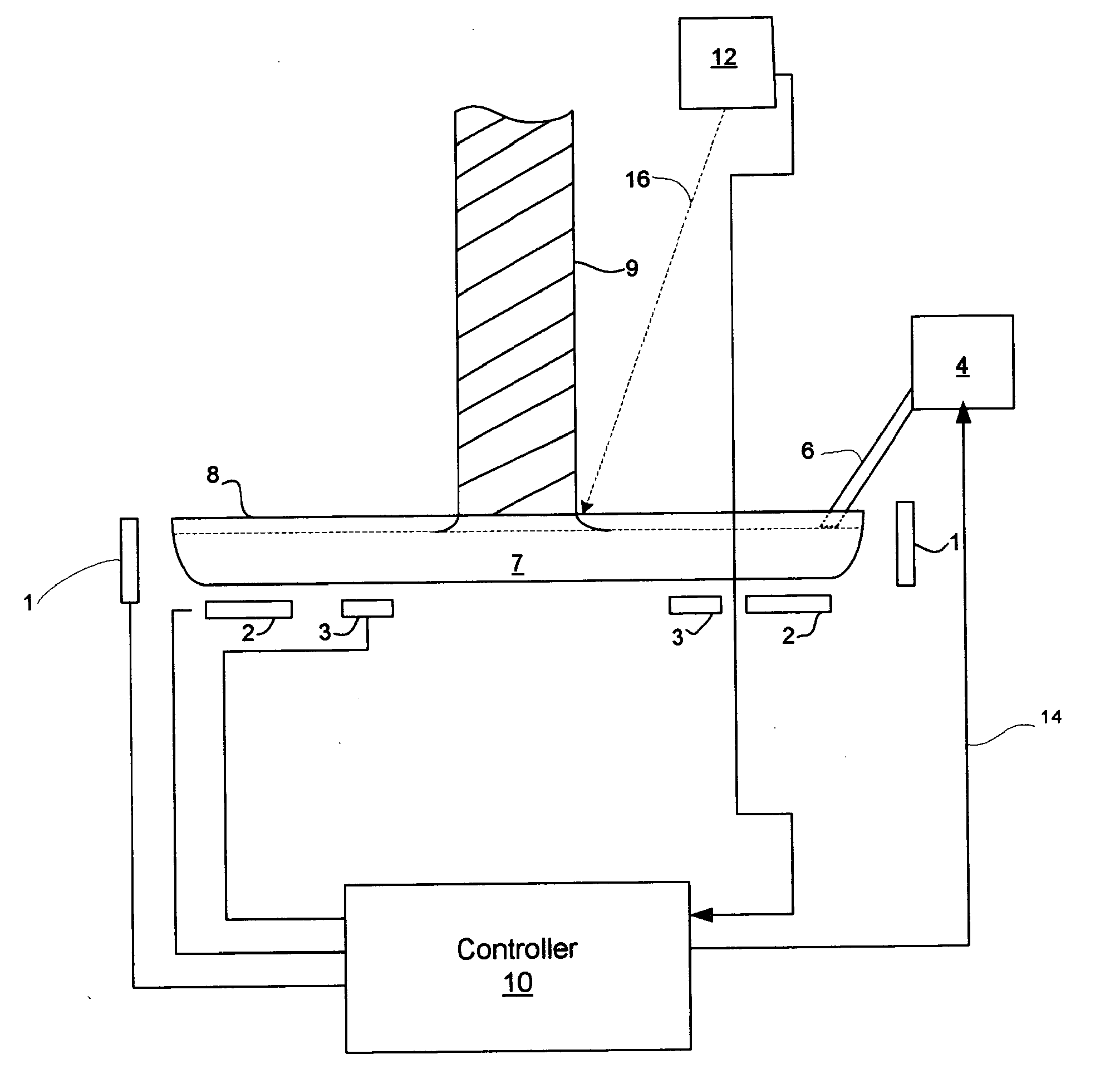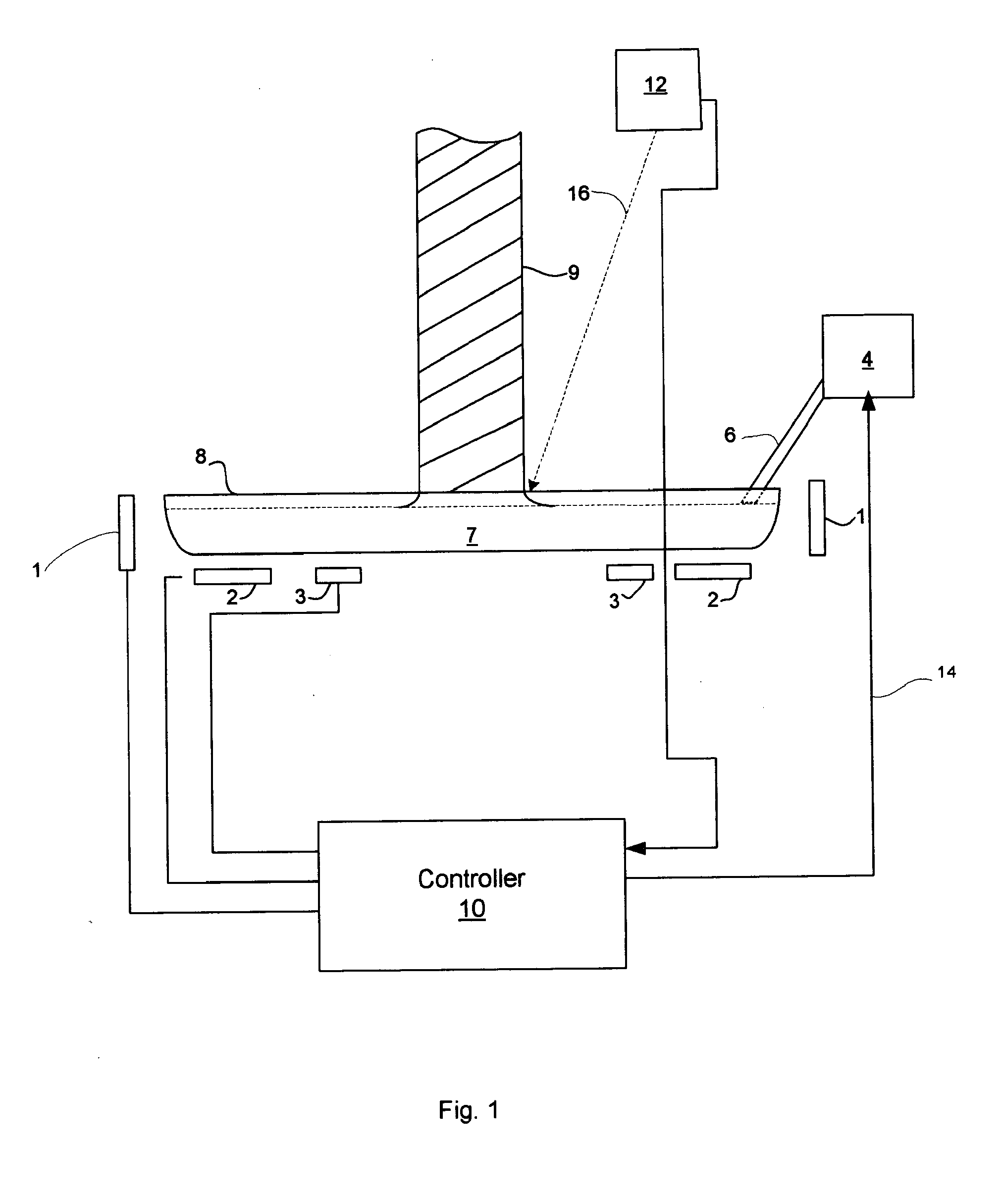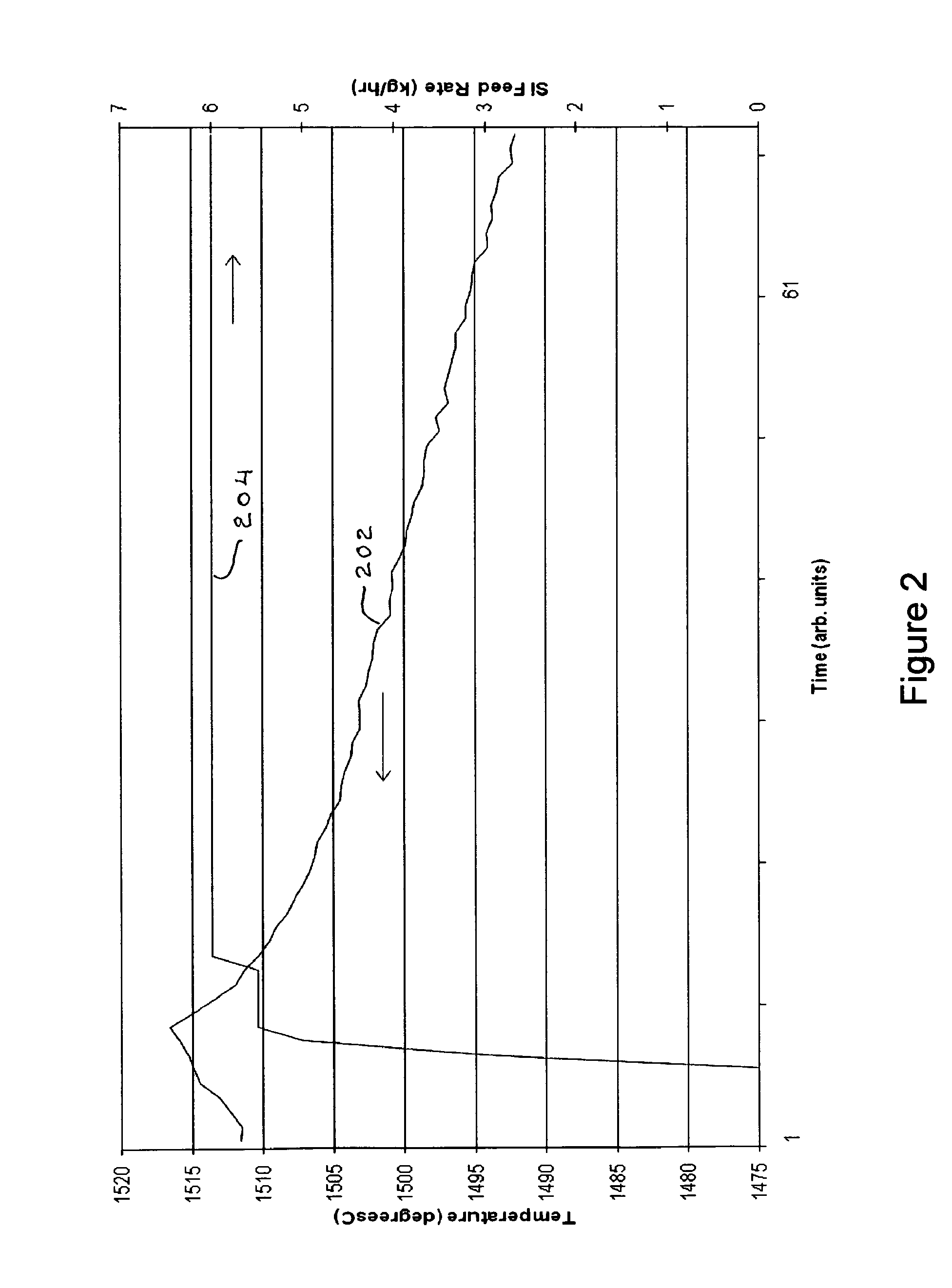Methods for controlling melt temperature in a czochralski grower
a technology of czochralski grower and melt temperature, which is applied in the direction of polycrystalline material growth, crystal growth process, polycrystalline material growth, etc., can solve the problems of reducing heater power, further time loss, and process taking non-productive time, so as to improve the temperature of the melt more efficiently, controllable reduce the melt temperature, and improve the effect of insulation
- Summary
- Abstract
- Description
- Claims
- Application Information
AI Technical Summary
Benefits of technology
Problems solved by technology
Method used
Image
Examples
Embodiment Construction
[0014]Referring to FIG. 1, a crystal growing system according to an aspect of the present invention provides a crucible 8 containing melt 7 from which an ingot 9 is being pulled. During the crystal pulling process, it is desirable to modify characteristics of the crystal being pulled, such as the rate of crystal solidification or the crystal diameter. One of the preferred means of doing this is by altering the melt temperature.
[0015]According to an aspect of the present invention, solid feedstock 5 may be added from feeder 4 through tube 6. This added solid feedstock material is at a much lower temperature than the surrounding melt and absorbs heat from the melt as the solid feedstock material's temperature rises, and as the solid material itself melts. As the solid feedstock material absorbs energy from the melt, the temperature of the melt falls immediately. This has been found to provide a very efficient, highly controllable means for cooling the melt and maintaining a desired me...
PUM
 Login to View More
Login to View More Abstract
Description
Claims
Application Information
 Login to View More
Login to View More - R&D
- Intellectual Property
- Life Sciences
- Materials
- Tech Scout
- Unparalleled Data Quality
- Higher Quality Content
- 60% Fewer Hallucinations
Browse by: Latest US Patents, China's latest patents, Technical Efficacy Thesaurus, Application Domain, Technology Topic, Popular Technical Reports.
© 2025 PatSnap. All rights reserved.Legal|Privacy policy|Modern Slavery Act Transparency Statement|Sitemap|About US| Contact US: help@patsnap.com



